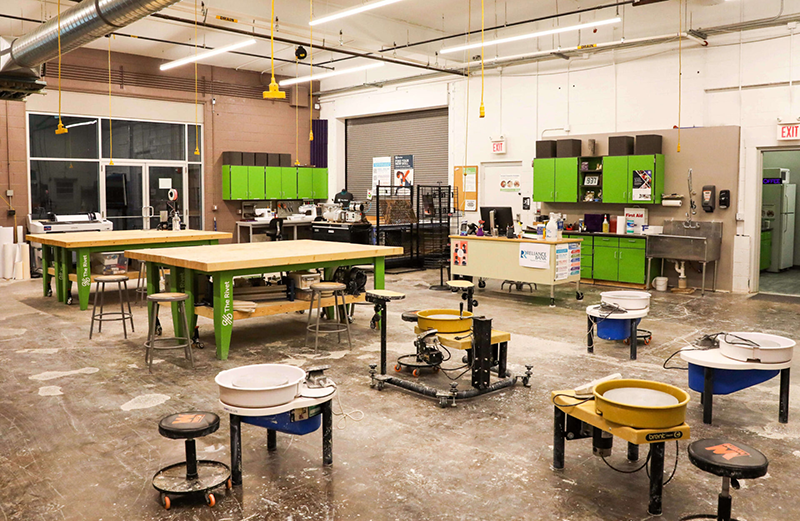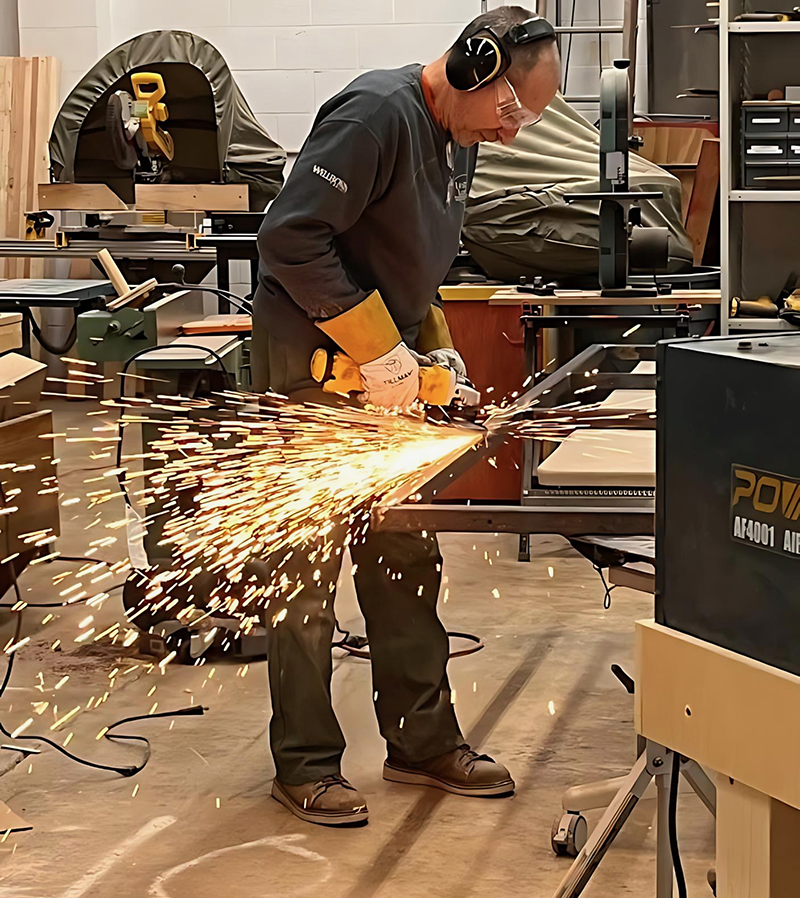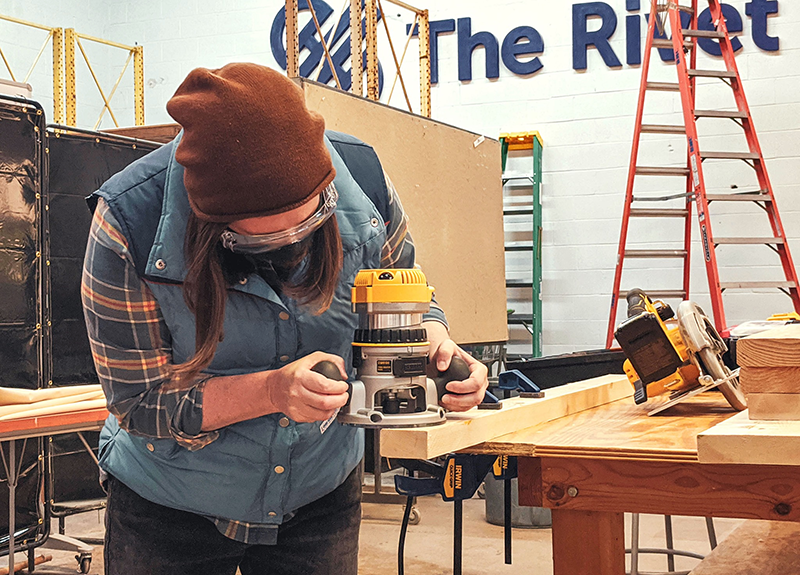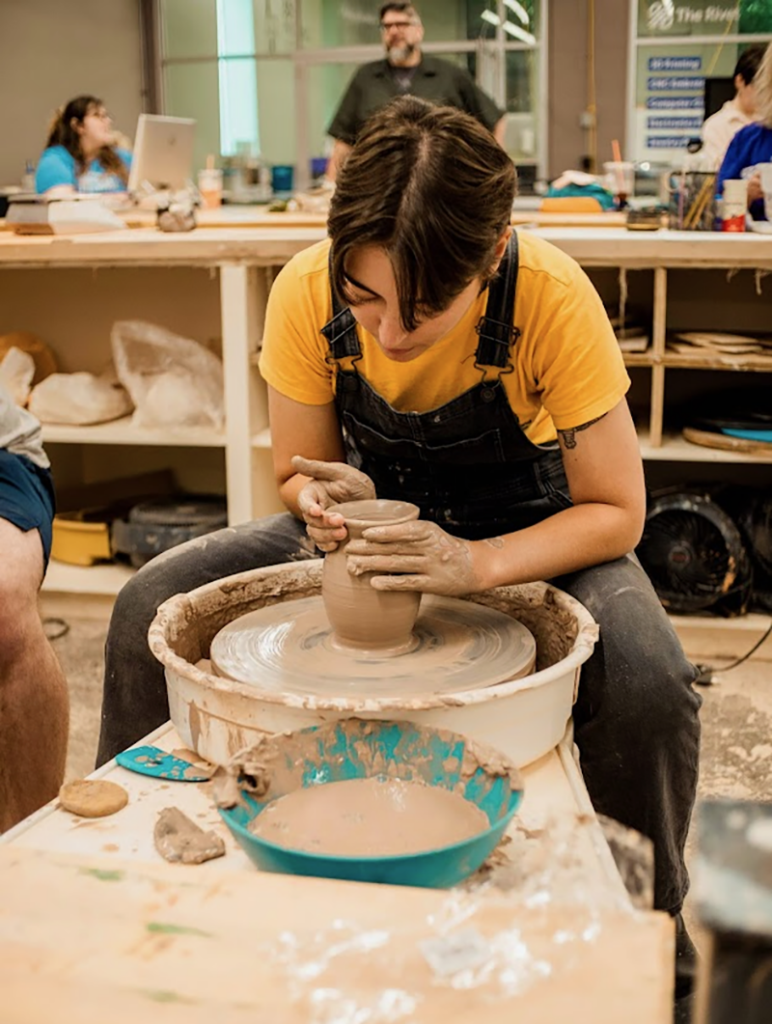
By Staff writers
When Penn State announced the closure of seven campuses, it sent shockwaves across Pennsylvania. Some saw it as abandonment. Others as hard-nosed financial pragmatism. But behind all the headlines was a much deeper question—one every community dependent on higher education must now confront:
What business are we really in?
We have spent decades building campuses to grant credentials. But today, the market is demanding something different: skills, adaptability, and real-world readiness. Degrees are not disappearing, but they’re no longer the only—or even the primary—ticket into the workforce.
Look at Discovery Space and The Rivet.
This science center and makerspace is not just hosting school field trips. It delivers one of the most quietly powerful workforce development models in the region—and it’s doing it with tools, mentorship, and hands-on immersion that goes far beyond traditional classrooms.
Where Workforce Development Begins—with Heart and Hands
At The Rivet, kids as young as eight are learning to use miter saws and drill presses—not just for fun, but with purpose and confidence. These aren’t passive tours or toy versions of tech. This is the real thing—designed to equip young people early with tangible, applicable skills.
By fourth grade, programs like Stempowered take this further, connecting students to real Penn State labs and local businesses through hands-on projects, vocabulary building, and workplace exposure. This is early immersion—not in theory, but in context. And that matters.
Because as AI accelerates and job descriptions evolve, the classroom alone won’t prepare the workforce we need. What will? Places like this—where STEM becomes touchable, visible, and real.
Middle School Momentum, High School Transformation
Middle school students build benches and “Little Free LABraries.” They learn teamwork, critical thinking, and project ownership. These aren’t buzzwords. They’re part of the NACE 8 Career Readiness Competencies—the very skills employers say they want and that our education system too often delays until college.
High schoolers get even more. Through Spark Internships and teaching opportunities, they’re not only learning AI—they’re building with it. One student built a class around artificial intelligence and now studies at Carnegie Mellon. That’s not just STEM prep. That’s pipeline development in real time.
For Adults Too—Because Learning Never Ends
And The Rivet doesn’t stop with youth. Adults come to upskill, reskill, or prototype business ideas. They learn laser cutting, digital fabrication, and design software in a space built for experimentation and growth. This is not hobbyist tinkering. It’s economic mobility through accessible tools and guidance.
In a job market where AI can code faster than junior developers, and where credentials alone are no longer a guarantee of employability, access to skill-building is everything.
And here’s the beautiful irony — this kind of future-focused learning is unfolding in a humble, reimagined warehouse on North Atherton, not behind the gates of a billion-dollar campus.
The Future Is Local—and Built by All Ages
So, while larger institutions wrestle with cost, relevance, and enrollment, Discovery Space and The Rivet show what’s possible when we act with heart and strategy. They’ve built a learning ecosystem that’s:
- Accessible to all ages
- Aligned with workforce needs.
- Powered by real tools and mentorship.
- Driven by community engagement—not just curriculum mandates.
This is what it looks like to deliver on NACE 8. This is what it looks like to respond to AI disruption not with fear—but with bold, hands-on creativity.
Why This Matters Now More Than Ever
In the wake of campus closures, we can choose to wring our hands. Or we can use them to build.
The market has spoken: it wants readiness, not rituals. It wants problem-solvers, not just graduates. It wants people who know how to learn, lead, and adapt.
That’s what The Rivet is creating—with wood, metal, circuits, and heart.
So, the next time you think about workforce development, don’t just look to universities or agencies. Look at the places where learning is alive, curiosity is sparked, and the future is being prototyped—one young builder, coder, or dreamer at a time.
If Penn State’s closures represent a question, Discovery Space and The Rivet are part of the answer.
Check out the Rivet All you need are closed-toe shoes and an open mind. https://therivet.org





